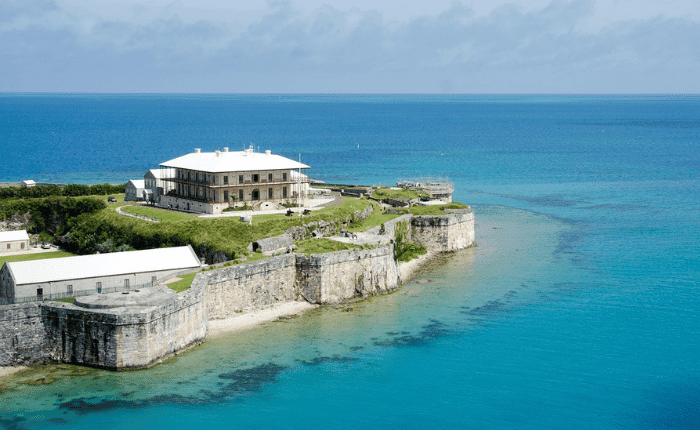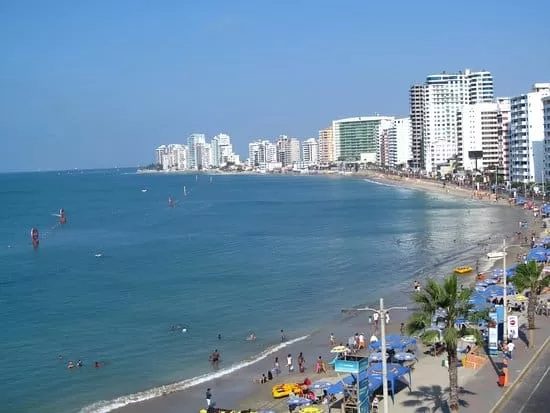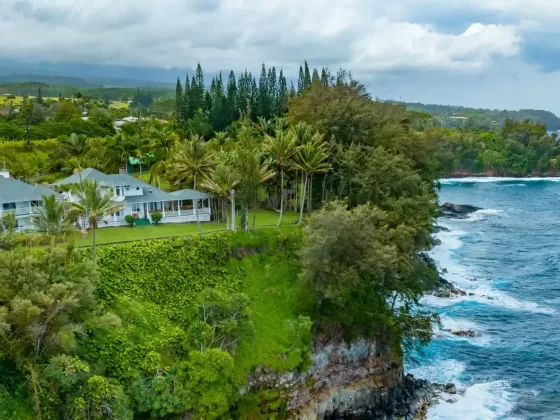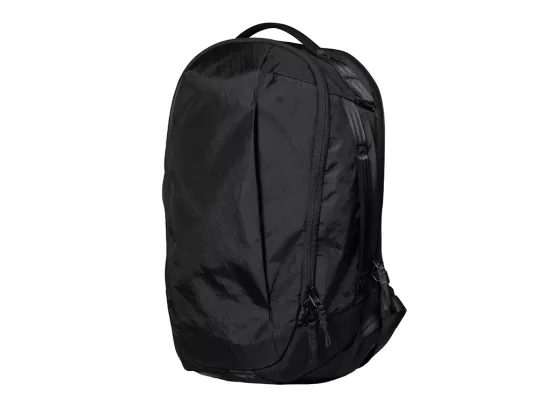The Bermuda Expat’s Survival Guide
Last month, I wrote about how to remove one’s self legally from the Canadian tax system. Why did I do this? Well, late in 2003 I took the plunge and accepted an IT position in Bermuda. It has been a year of trials, tribulations, and great fun. I have made some great friends, lived a great lifestyle, and saved some money. If I had to make the choice again, I wouldn’t hesitate!
Bermuda is a great place to visit, and generally a great place to work.
But unless you’re independently wealthy (a single million doesn’t count, even if Bermuda is a tax haven), this crazy little country is not the best place to retire. The country is the strangest place I’ve ever been to.
Nothing is quite what you would expect, and Bermuda information sites like Bermuda-Online don’t quite tell the whole story of what you can expect here. With that in mind, I present to you the Top Ten Things to Know before you come to Bermuda.
10. Come Married, Or Be Female
Bermuda is not a singles haven for expat men, though women will have a significantly better time. Most of the professional expat jobs here are in accounting and IT, traditionally male-dominated jobs. Since most of us expats stick together, it makes for many frustrating evenings for my single friends.
My friend Will has a favourite Friday night saying, and he usually gets to use it many times each Friday night. It invariably comes out just after he has smiled at some local girl while walking past: “Invisible!” Face it, fellas, the local girls don’t care about you, and won’t give you the time of day. Unless you’re a high-end actuary for one of the bigger reinsurance companies, your chances of finding a local girlfriend are low. Being an expat doesn’t make you a catch at all.
Setting aside romantic frustration for the moment, meeting new people can be easier for some than others. When you first arrive, chances are you won’t know anybody at all. Most of the other expats at your office will have gone through the same thing, and as such will carry on the tradition of welcoming the “new guy”. This will undoubtedly involve much consumption of local black rum.
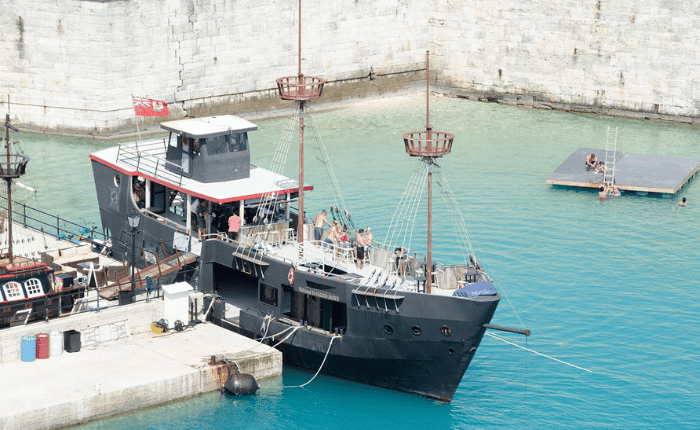
9. The Dark And Stormy Trail Is A Slippery Slope
With all the water sports, golf, and culture to be found in Bermuda, you would be amazed that some of us have time enough for drunken revelry. Well, it’s true. Friday night in Bermuda is a long-standing tradition. It starts just after work with Happy Hour, and how it ends is up to you. Up and down Front St. the revellers go, an ever-shifting composite of friends and associates. The most adventurous stay out long enough to end the night at Champions, the after-hours members club that only gets going at 2 am. Those slightly less adventurous could find themselves at Blue Juice, the open-air second-floor disco, or at The Beach, aptly named “The Shame of Front St.Goslings”, makers of Black Seal Rum, have a long-running marketing campaign called The Dark and Stormy Trail.
One of two national drinks of this country, the Dark and Stormy is an intoxicating (literally) blend of Black Seal and ginger beer. At any of the abundant tourist information kiosks around the country, you can pick up the D&S card, which has a list of 40-50 restaurants. At each of the listed restaurants, you get a stamp when you get a D&S. Get up to 15 stamps to collect different prizes, from t-shirts to hats, to polo shirts. It’s the ultimate country-wide pub crawl.
A note regarding restaurants: I only know of two that do not, “for your convenience”, add a 15% gratuity to the bill. Kudos to the Swizzle Inn and Island Hi for resisting the temptation. This horrid practice gives absolutely no incentive to the service staff to provide a good experience, although, again “for your convenience”, some of the upper-end restaurants will add a line for you to add an additional amount over the 15%, should you choose.
8. Only In Bermuda: Studio Apartments For $1800/mo, 2 Bedrooms For $3000
Blame it on the reinsurance companies and their overly generous housing allowances. Blame it on the opportunistic real estate agents and greedy landlords. Blame it on supply and demand. The sad truth is that housing in Bermuda is some of the most expensive on earth. The average home price recently hit $1,000,000. Luckily, it’s only a million Bermudian dollars. Wait – no, that can’t be right – the exchange ratio is 1:1 with the greenback!
There’s only so much land, and it’s almost all gone. Few new houses are being built, and those few that are “affordable” (a highly relative term) are located either in Somerset at the far west end, or in St. David’s at the east end of the island. Count on a good 45-minute commute. I stayed a few months last winter with a friend in Somerset. By the end of my two months, I was considering moving back to Canada, where the commute would only be ½ an hour. There are no highways, just a single 35km/h lane in each direction.
So how much does it cost to put a roof over your head these days? Count on $1000 or more for a room in a house share (your bedroom, plus common area), $2500 or so for a basic 1-bedroom place that isn’t out in St. David’s or Dockyards. Add $200-$400/mo for electricity, $120 or more for phone and Internet, $30-50 for basic cable and you’re set.
Read More like this Best Residency and Citizenship by Investment Options Under US$200K
7. It’s Not If You’ll Fall, It’s When Will You Fall
Call them scooters, auxiliary cycles, or mopeds, you will probably be using one of these as your primary transportation. Selling for $2000-$4000 new, and as little as $500 used, these Vespa-like scooters are ubiquitous across the island. Why? Because only one car is allowed per home by law. To get around the gridlock, the adventurous, young, and stupid among us have discovered a hidden “middle lane” along every road. Sometimes yellow, sometimes white, it’s always there if you search hard enough. It’s kind of narrow, though. They say everyone falls off (or gets knocked off) their bikes at least once. My “little incident” was thankfully barely a scratch, but there are significantly more road fatalities per capita in Bermuda than you would think possible for a place with a 35km/h speed limit.
6. Get To Know Your Water Guy
Most apartments and houses get rainwater as their primary source of water, for bathing, washing, flushing and drinking! Yes, there is a reason for all those strange-looking white roofs. While this is never a problem in the winter months – it rains quite a lot in the winter – it’s very likely that you will need to order water from a delivery company in the summer. These little tanker trucks carry about 900-1000 gallons per load and will charge you about $60 per load. Most water tanks (which replace North American basements) will hold 4-6 loads, so this, like most things in Bermuda, can get expensive.
The problem with the trucked water supply is that is not unlimited, and the demand in summer far outstrips supply. If you’re not a regular customer, forget it. Being without water for even ½ a day is a major hassle. Allow me to make a quick plug for our water guy – Anthony from HB Water. Tell him Rob and Mandee sent you.

5. Prepare To Enter A Willing State Of Suspended Disbelief At The Grocery Store
After many months, we’ve finally cracked the code. Groceries cost $50 per bag. Apart from housing, your biggest expense is likely to be groceries. For some reason Chicken is inexpensive. But forget about everything else. Bread $4.00 a loaf. Basic shampoo (Pantene) is $9.00 a bottle. Everything except milk, carrots, and onions, is imported. Usually, it’s brought in by boat. Fresh fruit is a real luxury – a pint of strawberries can fetch over $5. In season.
Unless you go shopping after 7 pm, your groceries are likely to be bagged by a school kid. Unless you like the look of death from everyone around you, tips are mandatory. About 50c per bag seems to be enough for expats to stay out of trouble, although I’ve seen some locals giving $5! Some of these kids earn more than cashiers.
4. “Hello, How Are You?” Goes A Long Way
One day, I was hanging around in Smiths, one of the “big” Front St. department stores. A friend of mine was serving a typical client – a rude New Jersey cruise ship tourist. This tourist obviously hadn’t heard of the Bermudian greeting rule. Every Bermudian expects to be asked how they are, no exceptions. Note to tourists: if, after asking a shop attendant a question before The Greeting, you get a barely perceptible delay, followed by a sweet smile and a “Good afternoon Madam, I will be with you shortly”, you’ve Been Told.
Anywhere else, a grouping of 60,000 people would be a town and would depend on a much larger city close by. Not here. Bermuda’s population hovers around 62,000. For that reason, you will start recognizing people in short order. Back in Canada, it was a rare surprise to run into someone you knew when walking or driving down the street. Here, it’s the opposite. Rarely does a day go by that I don’t see at least one person whose name I know.
It’s perfectly acceptable to stop in the middle of “dee rode”, and have a conversation with a friend on the sidewalk. Blocked traffic be damned – you haven’t seen this person in ages! It’s been what? A week? Hows yer momma?
3. No Matter What Your Religion, You’ve Got To Keep It Clean
Bachelors: this is for you. You simply must keep your home tidy and clean. Significantly cleaner than you could get away back in the “real world.” Sloppy living just isn’t practical here. Leave food on the counter and it will be crawling with ants within a couple of hours. Dog food left out must be floating with a moat of water to keep these things out. I don’t think I’m exaggerating when I estimate that fully ½ of all ants in the world live on this little island.
And then there’s the mould and mildew. We’re a small island, in the middle of the Atlantic Ocean. The average humidity hovers from 70-85%. Without constant moving air and sunlight in your home, things get fuzzy fast. Leather seems to be the most often affected – a friend has lost a couple of pairs of shoes and one really nice jacket to the warm green fuzzies. Other examples: Just last night, I pulled out my non-organic-material sandals for a New Year’s Eve toga party, and they were starting to go green. Home electronics are more likely to break from rust than from any other cause.
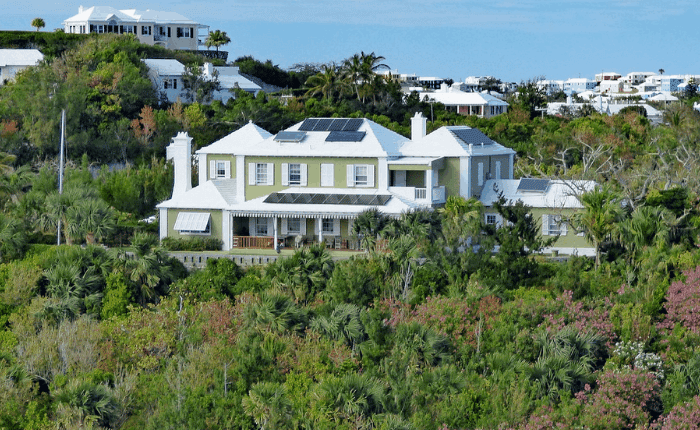
2. They May Call ‘em Palmetto Bugs, But They’re Not
Roaches! They’re everywhere. And they’re not tiny. Like the crabs crawling along almost every street in Belize, these suckers are everywhere. In springtime, they even fly a bit. This is yet another reason to keep your house cleaner than clean.
A popular book for new arrivals is “Tea with Tracy”. Unfortunately, I couldn’t find it at Amazon, but the book is a classic and a must-read for anyone moving to The Rock. In the book, the author describes her first year in Bermuda, complete with battling roaches, ants, mould, and everything else that can get into your house. My wife loved it and learned many pearls of wisdom.
Read More like this Reasons to Move Abroad
1. Island Fever Has Nothing To Do With Sex
It’s not class warfare, but there is a subtle yet noticeable resentment of expats by certain Bermudians. Not all Bermudians, not even 5%. But some Bermudian’s think we’re taking their jobs. I’m sure it happens everywhere – expats and immigrants supposedly taking the jobs of locals. Never mind whether they have the experience, the certifications or degrees, or the raw ability.
Expat island fever happens when you let those few locals get under your skin. Luckily, a quick trip to NYC or Toronto for the weekend has a high probability of curing this ailment.
I’m a pretty easy-going guy – most things roll off my back with ease. But I knew I had Island Fever a few months back when I read an editorial in the Royal Gazette. The author had an excellent suggestion for reducing the gridlock each morning: don’t allow expats to drive! Obviously, this person of eminent intelligence has all the answers. Thank you Air Canada for that well-timed seat sale!
So….
I hope you haven’t been scared away from Bermuda. If you have the urge to work in an island paradise for a few years, broaden your horizons, and save a bit of money, Bermuda could be just the place for you. There is no perfect place to live, but for me, Bermuda was a significantly better choice than staying in Canada.
I hope you enjoyed reading: The Bermuda Expat’s Survival Guide. If you have any questions, please contact our office HERE.
EA Editorial Staff
